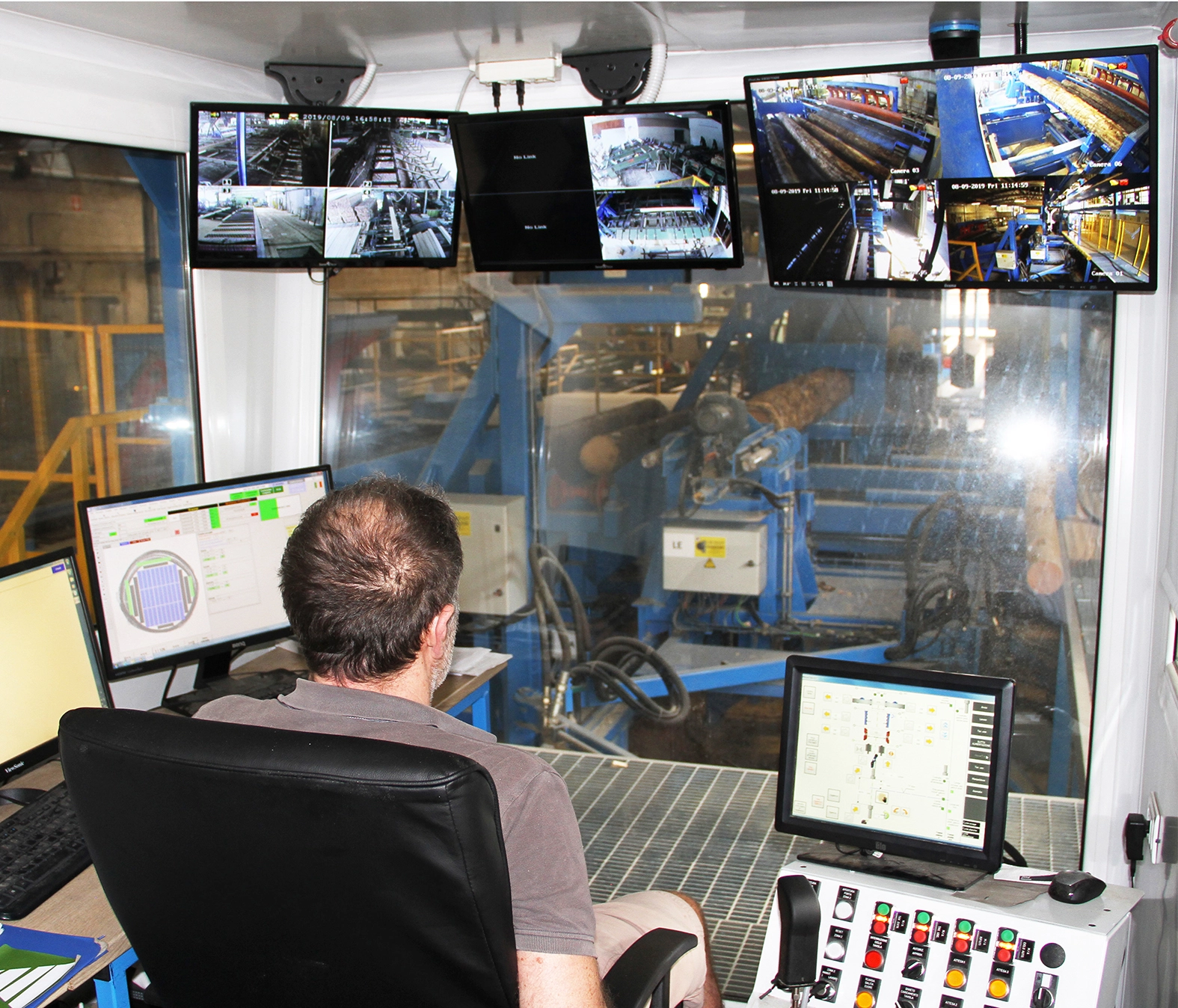What if France re-entered the market for primary processing machinery?

What if France re-entered the market for primary processing machinery?
Italians, Germans, Austrians… the manufacturers of primary processing machinery trust the European market, while new American and Chinese competitors are emerging at global level.
But the top 10 European machinery manufacturers do include one small-to-medium French company, Finega. What does it bring to the market, how does it differentiate itself from its competitors, and what is its philosophy? Could manufacturing primary processing machinery contribute to the goal of French reindustrialisation? The viewpoint of Michel Loyet, director of Finega and chairman of the Timber group within Evolis.

How do you position yourself within the highly competitive market for primary processing machinery?
We work in a highly concentrated market, with major players operating very large production facilities able to process 2000 to 3000 m³ per day. Their market is mass production, and they are particularly well-represented in countries with homogeneous resources that are easy to exploit. But that doesn't cover everyone's needs. Especially as these companies are operating in a context that is itself shifting. Firstly the cost of energy is rising, and secondly the trend is increasingly moving towards local operations with a smaller environmental impact. Today, medium-sized sawmills with production capacity of 200 to 500 m³ a day need to invest in highly automated machines that will ensure both productivity and flexibility. This is what we offer with our sawmill 4.0 concept, which incorporates technological innovations that can be plugged into their production systems and generate time savings and decision-making autonomy.

So for you, technological added value is a differentiating factor?
When we integrated the activities of GILLET-M1TB, RENNEPONT, MEM, SEGEM and CIRIS into the Finega group ten years ago, our strategy was to offer sawmills a highly productive global solution covering all of primary processing and to bring technologies together so that machines could communicate with each other to improve the sawmill's overall productivity. Today, all the machines delivered by Finega worldwide communicate with each other and are equipped with onboard cameras connected to our Data Centre in real time via our secure OSIA 4.0 platform.
The thousands of data points collected about the machines – vibration, temperature, pressure, speed, intensity, cycle time, production etc. – constitute a pool of information that can be analysed using artificial intelligence algorithms to increase productivity, reduce stoppage times, improve staff training and anticipate maintenance by predicting faults.

One of our most recent innovations is automatic checks on packages leaving the sawmill, using artificial intelligence to ensure traceability.
The packages are photographed, checked, electronically coded, wrapped with or without stringers depending on the type of packing required, labelled automatically with printed bar codes and QR codes and then routed for processing or customer goods outwards. This innovation, which we offer at very competitive prices, represents a considerable time saving and quality improvement.
How do you work on R&D, given that you probably have far fewer resources than the big manufacturers?
One way is thanks to the discussions we have within the Evolis trade association, which includes nearly 600 manufacturers. To give you an example, the solution we developed for automatic package processing is inspired by an application initially designed for sorting and grading potatoes! Timber is the only sector within Evolis that has a dedicated working group, and we are trying to attract manufacturers in other sectors who may have artificial intelligence solutions that could be applied to primary timber processing. Today we no longer sell machines or production lines, but integrated, scalable timber management solutions, which incorporate the mechanical aspects, the digital aspects, the human-machine interface and traceability. And our goal is to offer them at affordable prices for medium-sized sawmills.
Do you think France could regain a significant position in the timber machinery market?
Probably not in terms of joining the top three primary processing machinery manufacturers, which are configured for building mass production lines. But evolutions in the industry leave room for alternative offerings that are more agile, better suited to local operating conditions, less energy-intensive and less costly. We are already seeing a rebalancing of our revenue towards the domestic market since Covid. National support for the timber sector is very positive and creates new opportunities for sawmills, which have taken advantage in recent years to invest more in digital, connected, energy-efficient machinery.
While conditions in the sawmill market have grown more difficult in recent months, the investment dynamic remains positive.




